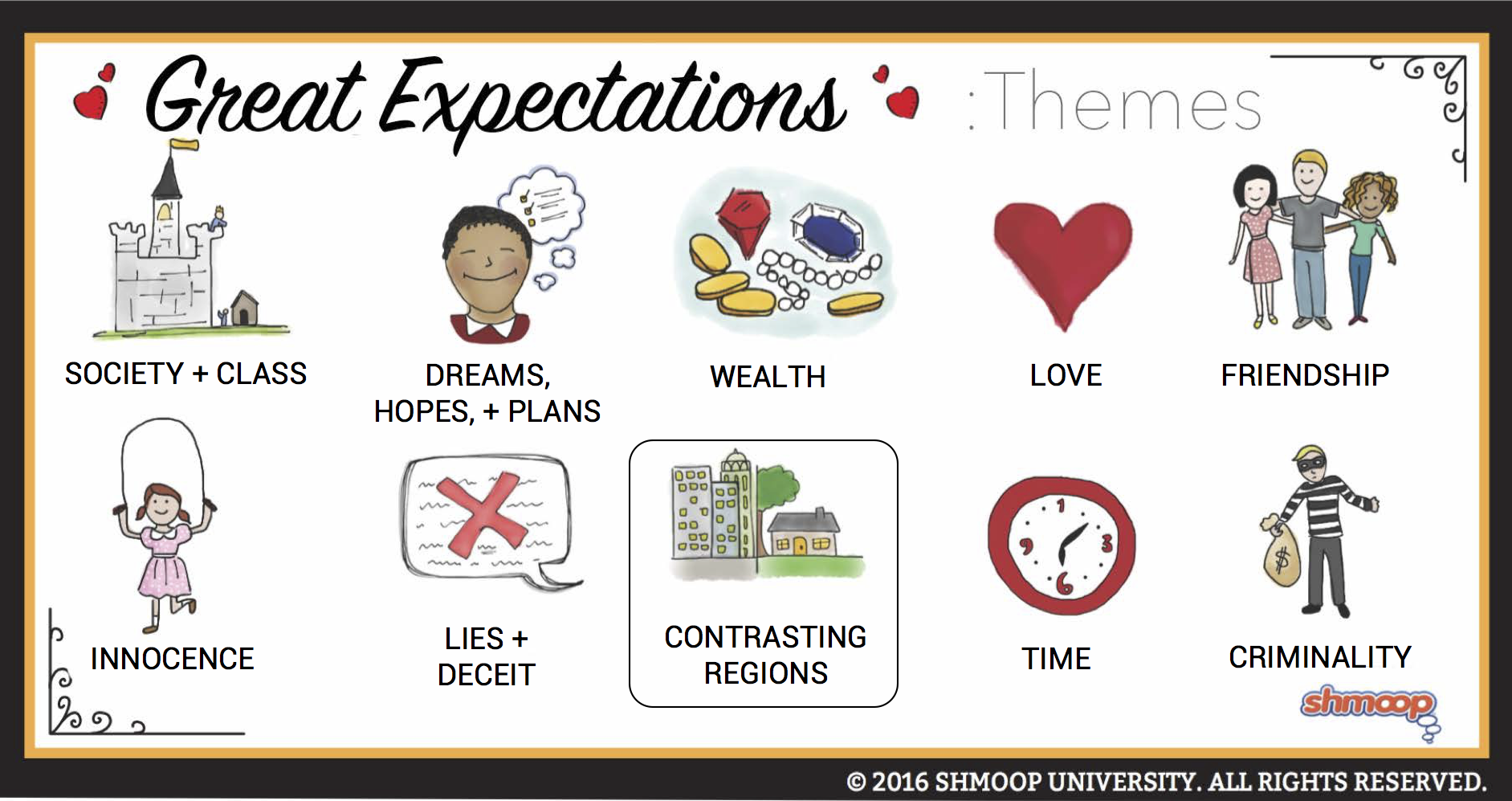 (Click the themes infographic to download.)
(Click the themes infographic to download.)
Pip is just a small town boy wandering up and down the boulevard—and, like a lot of small-town boys (or girls), he finds that big city life isn't all it's cracked up to be. And, like those small-town boys, he finds that you can't go home again, because his time in the city has changed him for good. Not that it's much different at home: marsh country may be worlds away from London, but it's full of corruption and decay just like London's stinking's alleys. Great Expectations sets London and Kent against each other, and then asks us to consider what, exactly, is so different about these regions anyway.
Questions About Contrasting Regions
- Why does Wemmick love his castle so much? What might Dickens be saying about the Victorian idea of separate spheres—is he criticizing it? Poking gentle fun at it? Approving of it?
- How is Pip's hometown different from London? How is it similar? How does visiting London change the way Pip sees Kent?
- Where is Pip happiest?
Chew on This
By using contrasting regions, Dickens explores the adolescent struggles that most people feel.
The marshes mirror Pip's mental landscape; it's more important as a mental setting than a physical setting.